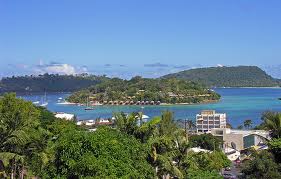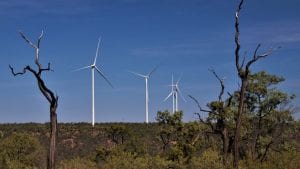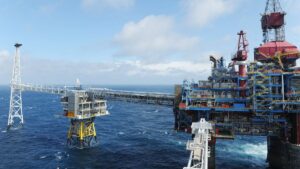Tasmanian-based geothermal aspirant Kuth Energy plans to push ahead with a $100 million project to build an 8MW geothermal plant in Vanuatu after the World Bank endorsed the project.
A World Bank report presented to the Vanuatu government said that geothermal represented the least-cost replacement for its current source of energy, diesel, and was cheaper than wind or solar PV. It recommended that priority be given to Kuth’s Takara project above other generation technologies.
Vanuatu is the first of a number of island grid opportunities identified by Kuth Energy. The others are on Saipan in the Northern Marianas and Fiji. Vanuatu has peak demand of 11.2MW and is currently serviced by 23MW of diesel capacity and 3MW of wind capacity. Customers pay 60c/kWh.
Kuth Energy says it is now going to be working with the local utility UNELCO, an offshoot of the French energy giant GDF Suez, to strike a power purchase agreement and then seek financing options with international development banks. The project is likely to be built over two stages.
The project would be built on the main island of Efate, and would include a connection to the capital Port Vila, and other areas which don’t currently have electricity. The World Bank estimates the project, including transmission, could cost up to $120 million, and the geothermal plant alone between $75 million and $91 million, although Kuth Energy sees it at the lower end of that estimate, with half coming from development bank loans. The first stage could be completed by 2015, and the second stage by 2019, when it could account for more than 55 per cent of the island’s energy needs.
“There is no doubt there have been some challenges and some unfortunate delays in reaching this point but this report confirms the strategy Kuth is pursuing,” the company said in a statement.
“The dynamics of diesel replacement are very different to coal produced energy and as such an 8MW plant in Vanuatu could produce revenues in line with a 50MW coal-fired plant in Australia (based on the average wholesale price paid to independent power producers in 2010-11).”
CEO David McDonald said Vanuatu and the other island grids offered greater opportunities than in Australia, given the current state of the carbon policy debate.
“It is important that the company continue to pursue projects where the risk profile, capital requirements and funding support mechanisms are within the scope of Kuth’s ability to deliver on the project potential,” he said. “Vanuatu is such a project and, importantly, we are developing a portfolio of diesel replacement projects in other Pacific locations where we can transfer the experience, skills and alliances.”
Unlike in Australia, the geothermal resource in Vanuatu, which is located on the Pacific “ring of fire”, is volcanic and more easily exploited.
And also unlike Australia, geothermal will replace expensive diesel generation, which can cost islands $500/MWh or more for electricity, which means that despite the extra costs associated with developing such a project at a remote location, it was still the most cost effective. The project could also generate carbon credits through the Clean Development Mechanism (which will be accessed by Australian companies once – and if – the Australian carbon price moves to a trading scheme).







